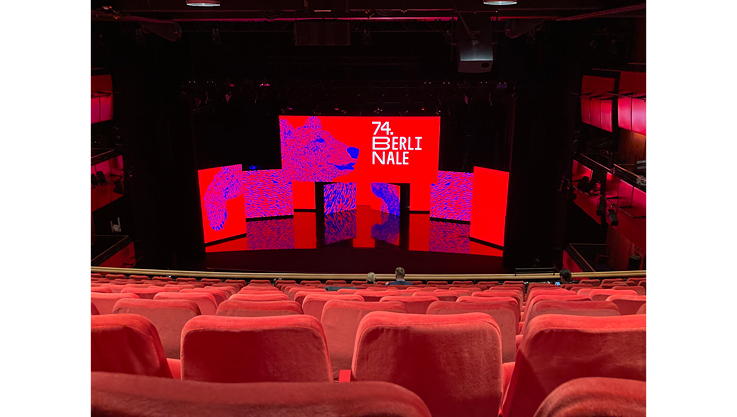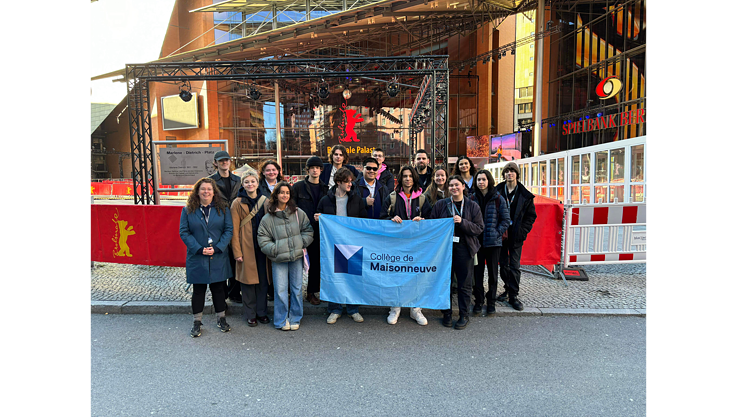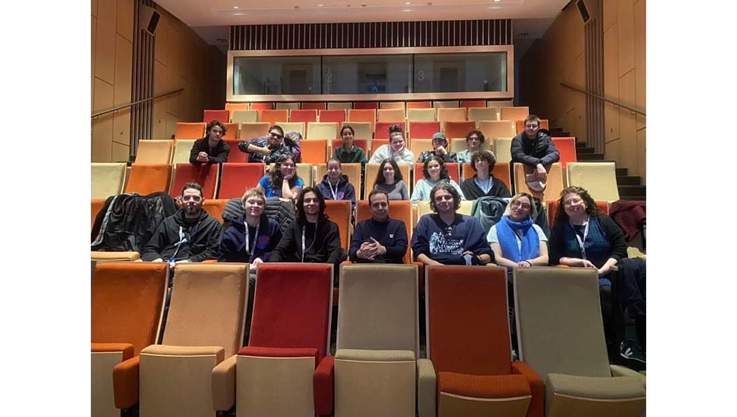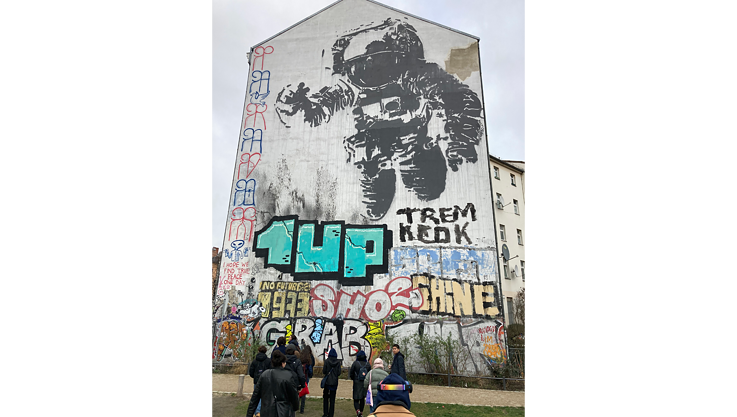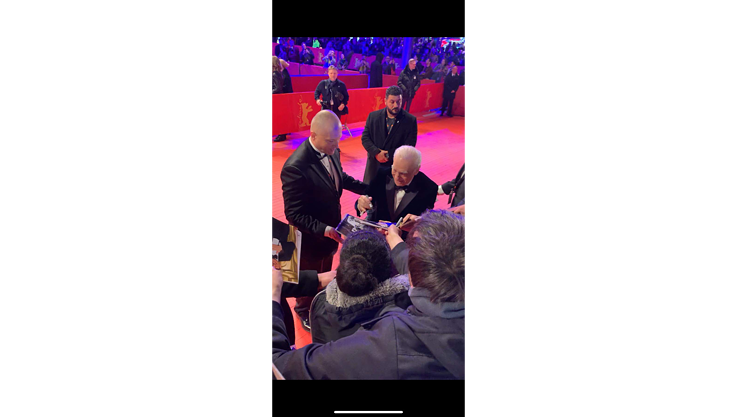Berlinale Bloggers
Berlinale 2024 Retrospective
En février dernier, 15 étudiants en cinéma du Collège Maisonneuve ont eu l'occasion de s'envoler pour Berlin à l'occasion de la Berlinale. Dans le cadre d'un partenariat avec le Goethe-Institut Montreal, ils ont accepté de nous faire part de leurs impressions dans la capitale allemande à travers une série de textes.
By Victoria Céasar, Léo Cecchetti and Albert Pomerleau
An unforgettable experience
At the 74th edition of the Berlinale, we had the chance to discover previously unseen films produced in a multitude of countries. The festival enabled us to broaden our cinematic culture considerably, not least thanks to the diversity of the works presented. In fact, the program was made up of innovative films that turned our vision of cinema on its head, our way of conceiving films and the way we discuss them.We could also find more traditional, but just as impressive, films. These films were entertaining at times, moving at others, and more often than not brilliantly made. In fact, we attended the premiere of Comme le feu, by Quebec director Philippe Lesage. This colorful drama is a favorite of many students. With its intense dialogue and beautifully constructed twists and turns, Comme le feu stood out from the rest of the festival (see film review). Also in Canadian cinema, Intercepted, a film by Oksana Karpovych, made its mark thanks to its ingenious way of documenting the Russian army's invasion of Ukraine. Through landscapes of war-torn Ukraine, calls from soldiers to their loved ones follow one another, revealing the cruellest corners of humananity. Intercepted is a disturbing yet impressive film, distinguished by its highly original concept.
In addition to the many screenings we were able to attend, we also had the opportunity to take part in some very special events. For example, some students attended the red carpet event for the film Mé El Aïn, thanks to a student who had received an invitation from the producers. They had a unique experience and even had the opportunity to walk the famous festival red carpet in front of the Berlinale Palast. Other students also had the chance to see Martin Scorsese up close when he appeared on the carpet. The famous director was on hand to receive his honorary Golden Bear award. The event was an exceptional experience for many, considering the importance of the Italian-American director in contemporary cinema.
A lot more than a film festival
In addition to the Berlinale and cinema, we had the chance to discover the magnificent city of Berlin and decipher some of its secrets thanks to numerous activities. We were lucky enough to take a guided tour of the Kreuzberg district with Bianca, a street art guide from the Good morning Berlin organization. The three hours we spent in her company allowed us to discover what Berlin hides in the light of day. Even what appeared to be simple graffiti tags were in truth evidence of an ingenious and unique culture that was truly impressive.Afterwards, we went to confront our artistic visions in the Boros collection, a contemporary art gallery. Housed in a former bunker bombed out during the Second World War, the Boros collection did not meet with unanimous approval. As the works were often shocking and highly abstract, we came away from the visit with divided opinions, but that's often the case with contemporary art. In the end, most of us decided to visit the Sachsenhausen Memorial Center, a former concentration camp just 30 kilometers from Berlin.There we learned more about one of mankind's greatest tragedies. The tour lasted three hours and was a powerful experience thanks to the narrative skills of our guide, Chris. It was with hearts heavy with the weight of the crimes of the past that we left our visit, knowing that we had just lived through an unforgettable experience.
A change that encourages exchange
Our experience in Berlin also enabled us to meet new people who shared our passion for cinema. These encounters were made possible through an evening at the Canadian Embassy in Berlin, as well as an evening organized by SODEC. These events were unique opportunities to immerse ourselves in the culture and mores of a milieu we are passionate about, enabling us to experience and better understand it.These evenings gave us the chance to talk with cinema artisans and discuss the festival with other participants. These discussions were very enriching, as they gave us the opportunity to compare our vision of the festival and cinema with the opinions of other enthusiasts. We also had the chance to meet film director Philippe Lesage at the Berlinale. Meeting an artist of this stature after seeing his film was a unique experience, and particularly useful for developing our critical thinking. We also discussed his career path with him, which contributed to our understanding of how to realize our dreams and project ourselves into them.
